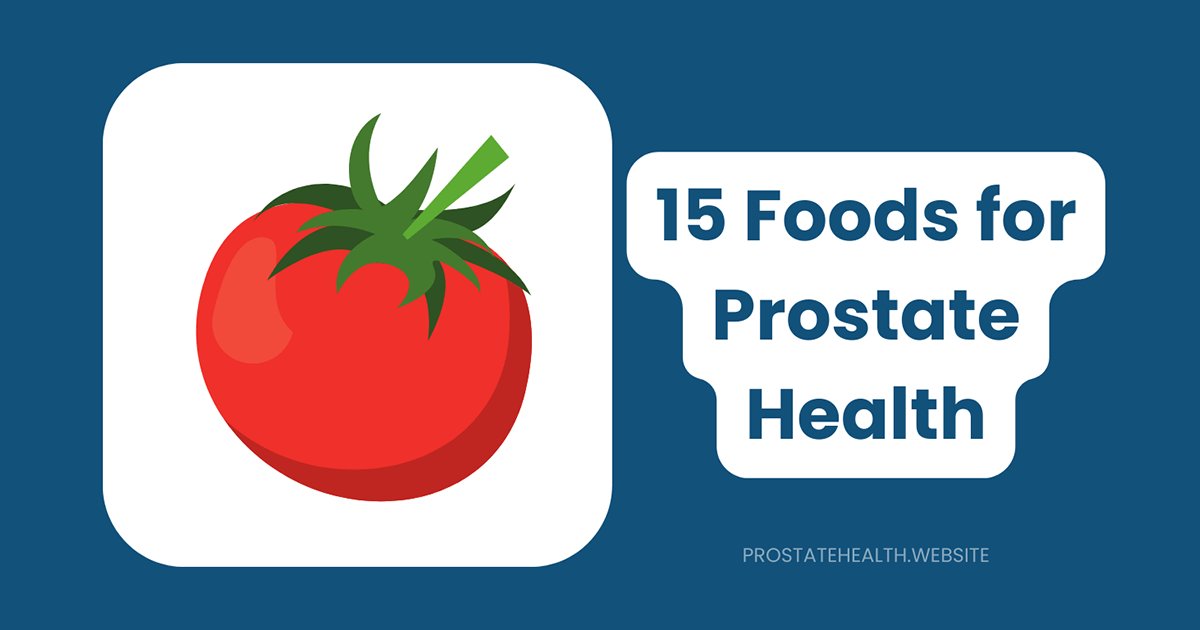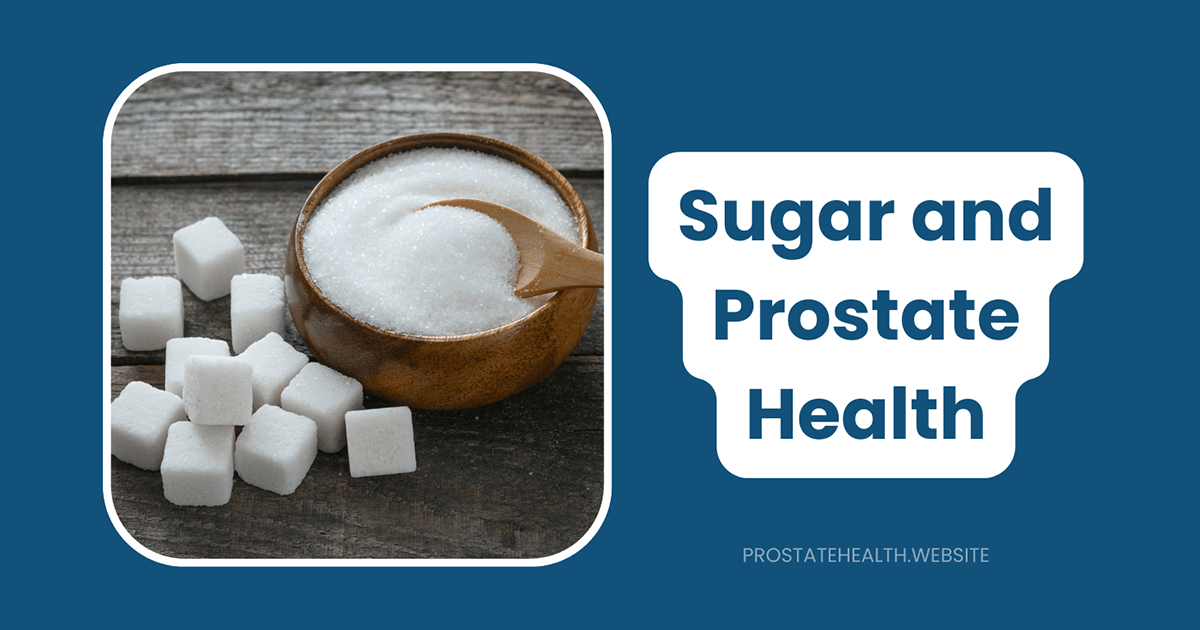Top 15 Foods That Support Prostate Health

When it comes to men’s health, few topics deserve more attention than prostate health. This small gland plays a crucial role in male reproductive function, yet many men don’t think about it until problems arise. The good news? Your diet can significantly impact prostate health, potentially reducing your risk of common conditions like benign prostatic hyperplasia (BPH) and prostate cancer.
Throughout my years of advocating for men’s health, I’ve seen how simple dietary changes can make a profound difference. Research consistently shows that certain foods contain powerful nutrients that support prostate function and protect against disease. Let’s explore the top 15 foods that deserve a place on your plate for optimal prostate health.
1. Tomatoes: The Lycopene Powerhouse
Tomatoes top nearly every list of prostate-friendly foods, and for good reason. They’re rich in lycopene, a powerful antioxidant that gives tomatoes their red color and offers significant protection for the prostate.
Why They Work
Research published in the American Journal of Clinical Nutrition found that men who consume more lycopene have up to a 35% lower risk of developing prostate problems. Lycopene helps neutralize free radicals that can damage prostate cells and may even slow the growth of existing prostate tumors.
How to Enjoy Them
Here’s something interesting: cooked tomatoes actually provide more bioavailable lycopene than raw ones. The heating process breaks down the cell walls, releasing more of this beneficial compound. For maximum benefit:
- Add tomato sauce to pasta dishes
- Enjoy tomato soup regularly
- Include sun-dried tomatoes in salads and sandwiches
- Drink tomato juice as an occasional beverage
- Pair tomatoes with healthy fats like olive oil to enhance lycopene absorption
Pro tip: Just two servings of cooked tomatoes per week can make a measurable difference in prostate health.
2. Cruciferous Vegetables: Broccoli and Beyond
Cruciferous vegetables like broccoli, cauliflower, Brussels sprouts, and kale contain compounds that may be particularly powerful for prostate protection.
Why They Work
These vegetables are rich in glucosinolates, which break down into bioactive compounds like sulforaphane. According to research from the Journal of the National Cancer Institute, sulforaphane can target cancer cells and promote prostate health by:
- Reducing inflammation
- Enhancing detoxification enzymes
- Protecting healthy cells from damage
- Potentially slowing the progression of prostate cancer
Studies suggest that men who eat cruciferous vegetables more than once a week may reduce their risk of advanced prostate cancer by up to 45%.
How to Enjoy Them
- Add broccoli florets to stir-fries
- Roast Brussels sprouts with olive oil and garlic
- Include kale or cabbage in soups and stews
- Try cauliflower “rice” as a grain alternative
- Add arugula to salads and sandwiches
Pro tip: Light steaming preserves more of the beneficial compounds than boiling or microwaving.
3. Fatty Fish: Omega-3 Goodness
Fatty fish like salmon, mackerel, sardines, and trout are excellent sources of omega-3 fatty acids, which have powerful anti-inflammatory properties.
Why They Work
Chronic inflammation is a risk factor for prostate problems, including BPH and prostate cancer. The omega-3 fatty acids in fish help combat this inflammation. According to research published in the American Journal of Clinical Nutrition, men who eat fish regularly have a lower risk of developing aggressive prostate cancer.
Additionally, these fish provide vitamin D, which some studies suggest may play a role in prostate cancer prevention.
How to Enjoy Them
- Aim for 2-3 servings of fatty fish per week
- Grill or bake salmon with herbs and lemon
- Add sardines to salads or whole-grain toast
- Use canned tuna (packed in water) for quick meals
- Try fish tacos with plenty of vegetables
Pro tip: Wild-caught fish typically contain higher levels of omega-3s than farm-raised varieties.
4. Berries: Antioxidant Superstars
Berries—including strawberries, blueberries, raspberries, and blackberries—are packed with antioxidants that help protect cells throughout the body, including those in the prostate.
Why They Work
Berries contain powerful antioxidants called anthocyanins, which give them their vibrant colors. These compounds help neutralize free radicals that can damage prostate cells and lead to inflammation or cancer. According to research from the Journal of Agricultural and Food Chemistry, berries have some of the highest antioxidant content of any fruits.
How to Enjoy Them
- Add fresh berries to breakfast cereal or yogurt
- Blend frozen berries into smoothies
- Enjoy berries as a naturally sweet dessert
- Mix several varieties for a colorful fruit salad
- Add dried berries to trail mix or oatmeal
Pro tip: Frozen berries retain most of their nutritional value and are available year-round.
5. Nuts: Nutrient-Dense Powerhouses
Nuts—particularly Brazil nuts, walnuts, and almonds—provide essential minerals and healthy fats that support prostate function.
Why They Work
Different nuts offer various benefits for prostate health:
- Brazil nuts are exceptionally high in selenium, a mineral linked to reduced prostate cancer risk. Just 1-2 Brazil nuts daily provides the recommended amount of selenium.
- Walnuts contain alpha-linolenic acid (ALA), an omega-3 fatty acid with anti-inflammatory properties.
- Almonds provide zinc and vitamin E, both important for prostate health.
A study published in the British Journal of Nutrition found that men who regularly consumed nuts had lower rates of BPH and prostate cancer.
How to Enjoy Them
- Snack on a small handful of mixed nuts
- Add chopped nuts to salads for crunch
- Use ground nuts as a coating for fish or chicken
- Blend nuts into homemade pesto or sauces
- Try nut butters on whole-grain toast
Pro tip: Nuts are calorie-dense, so stick to a serving size of about 1/4 cup.
6. Pumpkin Seeds: Zinc-Rich Morsels
Pumpkin seeds (also called pepitas) may be small, but they pack a powerful punch when it comes to prostate health.
Why They Work
Pumpkin seeds are one of the best plant-based sources of zinc, a mineral essential for prostate function. The prostate contains more zinc than any other organ in the body, and maintaining adequate levels is crucial for prostate health.
These seeds also contain plant compounds called phytosterols, which may help reduce an enlarged prostate by preventing the conversion of testosterone to dihydrotestosterone (DHT)—a hormone that can stimulate prostate growth.
How to Enjoy Them
- Snack on raw or lightly toasted pumpkin seeds
- Sprinkle them on salads or soups
- Add them to homemade granola or trail mix
- Blend them into smoothies for added nutrition
- Use them as a topping for roasted vegetables
Pro tip: Just 5 grams (about a tablespoon) of pumpkin seeds daily can provide beneficial effects for prostate health.
7. Pomegranate: Antioxidant-Rich Fruit
This ruby-red fruit has gained attention for its potential benefits for prostate health.
Why It Works
Pomegranates contain extremely high levels of antioxidants—even higher than green tea or red wine. These antioxidants, particularly ellagitannins, may help slow the progression of prostate cancer and reduce inflammation.
A study published in Clinical Cancer Research found that men with recurrent prostate cancer who drank pomegranate juice daily experienced a significant slowing in their PSA doubling time (a marker for prostate cancer progression).
How to Enjoy It
- Eat the seeds (arils) fresh as a snack
- Add pomegranate arils to salads
- Drink pure pomegranate juice (unsweetened)
- Use pomegranate molasses as a glaze for meats
- Add to smoothies for a tart flavor boost
Pro tip: When buying pomegranate juice, look for 100% juice without added sugar.
8. Green Tea: Catechin-Rich Beverage
Green tea has been consumed for thousands of years for its health benefits, including potential protection for the prostate.
Why It Works
Green tea contains powerful antioxidants called catechins, particularly epigallocatechin gallate (EGCG). These compounds have been shown to inhibit the growth of prostate cancer cells and reduce inflammation.
According to research published in the American Journal of Epidemiology, men who drink multiple cups of green tea daily have a lower risk of developing prostate cancer.
How to Enjoy It
- Drink 2-3 cups of green tea daily
- Try it both hot and iced for variety
- Use green tea as a base for smoothies
- Experiment with different varieties like sencha or matcha
- Consider green tea extract supplements (under medical supervision)
Pro tip: Brew green tea at a slightly lower temperature than black tea (around 175°F) to preserve more of the beneficial compounds.
9. Legumes: Plant Protein Powerhouses
Beans, lentils, chickpeas, and other legumes offer numerous benefits for prostate health.
Why They Work
Legumes are excellent sources of plant protein, fiber, and various minerals important for prostate health. They also contain phytoestrogens, plant compounds that may help regulate hormone levels and prevent prostate enlargement.
Research published in the Journal of Nutrition suggests that regular consumption of legumes may help suppress tumor growth and reduce inflammation.
How to Enjoy Them
- Add beans to soups, stews, and chili
- Enjoy hummus as a dip for vegetables
- Try lentil soup or dal
- Include chickpeas in salads
- Experiment with bean-based veggie burgers
Pro tip: Rinse canned beans thoroughly to reduce sodium content.
10. Garlic and Onions: Allium Vegetables
Garlic, onions, shallots, and other allium vegetables offer unique benefits for prostate health.
Why They Work
These flavorful vegetables contain organosulfur compounds that have anti-inflammatory and potentially anti-cancer properties. According to research from the Journal of the National Cancer Institute, men who consume more allium vegetables have a lower risk of prostate cancer.
Garlic, in particular, contains compounds that may help prevent the development of BPH and inhibit the growth of prostate cancer cells.
How to Enjoy Them
- Add minced garlic to sautéed vegetables
- Include onions in soups, stews, and stir-fries
- Roast whole garlic bulbs for a milder, sweeter flavor
- Try shallots in salad dressings and sauces
- Let crushed garlic sit for 10 minutes before cooking to maximize beneficial compounds
Pro tip: For maximum health benefits, crush or chop garlic and let it sit for about 10 minutes before cooking to allow the beneficial compounds to form.
11. Turmeric: The Golden Spice
This bright yellow spice does more than add color and flavor to dishes—it offers significant benefits for prostate health.
Why It Works
Turmeric contains curcumin, a compound with powerful anti-inflammatory and antioxidant properties. Laboratory studies have shown that curcumin can inhibit the growth of prostate cancer cells and reduce inflammation.
A review published in Molecular Nutrition & Food Research highlighted curcumin’s potential to prevent and treat prostate cancer through multiple mechanisms.
How to Enjoy It
- Add turmeric to curries and soups
- Make golden milk (turmeric mixed with warm milk and honey)
- Include it in smoothies (just a small amount)
- Try turmeric tea
- Combine with black pepper to enhance absorption
Pro tip: Always pair turmeric with a small amount of black pepper, as the piperine in pepper increases curcumin absorption by up to 2,000%.
12. Avocados: Healthy Fat Source
Avocados provide healthy fats and nutrients that support overall health, including prostate function.
Why They Work
Avocados are rich in monounsaturated fats, which support heart health and proper hormone function. They also contain beta-sitosterol, a plant sterol that may help reduce symptoms of BPH by decreasing inflammation and improving urinary flow.
Additionally, avocados provide lutein, an antioxidant that has been linked to lower rates of prostate cancer.
How to Enjoy Them
- Spread mashed avocado on whole-grain toast
- Add sliced avocado to salads and sandwiches
- Use as a creamy base for smoothies
- Make guacamole with plenty of garlic and lime
- Use as a replacement for mayonnaise or butter
Pro tip: To keep cut avocados from browning, sprinkle with lemon juice and store in an airtight container.
13. Olive Oil: Mediterranean Staple
Extra virgin olive oil is a cornerstone of the Mediterranean diet, which has been associated with lower rates of prostate cancer.
Why It Works
Olive oil is rich in monounsaturated fats and contains powerful antioxidants called polyphenols. These compounds have anti-inflammatory effects and may help protect against oxidative damage to prostate cells.
Research published in the International Journal of Cancer found that men who consumed more olive oil had lower rates of advanced prostate cancer.
How to Enjoy It
- Use as a base for salad dressings
- Drizzle over cooked vegetables
- Use for low-temperature cooking
- Dip whole-grain bread in olive oil instead of using butter
- Combine with herbs for a flavorful sauce
Pro tip: Look for extra virgin olive oil in dark bottles, which protects the oil from light degradation and preserves its beneficial compounds.
14. Citrus Fruits: Vitamin C Boosters
Oranges, grapefruits, lemons, and other citrus fruits provide vitamin C and other compounds that may benefit prostate health.
Why They Work
Citrus fruits are excellent sources of vitamin C, an antioxidant that helps protect cells from damage. They also contain flavonoids like naringenin and hesperidin, which have anti-inflammatory properties.
A study published in the Journal of Nutrition found that men who consumed more citrus fruits had a lower risk of developing prostate cancer.
How to Enjoy Them
- Eat fresh oranges or grapefruit as snacks
- Add lemon or lime juice to water
- Use citrus zest in cooking for flavor
- Include segments in salads
- Make fresh citrus juice (in moderation due to sugar content)
Pro tip: Eat the whole fruit rather than just drinking the juice to get the benefit of fiber, which slows sugar absorption.
15. Whole Grains: Fiber-Rich Foundations
Whole grains like brown rice, oats, quinoa, and barley provide important nutrients and fiber that support prostate health.
Why They Work
Whole grains contain fiber, antioxidants, vitamins, and minerals that work together to support overall health, including prostate function. The fiber in whole grains helps regulate hormone levels and promotes healthy digestion, which can reduce inflammation throughout the body.
Research published in the British Journal of Nutrition found that men who ate more whole grains had a lower risk of prostate cancer.
How to Enjoy Them
- Start the day with oatmeal topped with berries and nuts
- Choose brown rice instead of white
- Try ancient grains like quinoa, farro, or barley in salads
- Use whole-grain bread for sandwiches
- Experiment with whole-grain pasta
Pro tip: Look for products where “whole grain” is listed as the first ingredient to ensure you’re getting the real thing.
Putting It All Together: Creating a Prostate-Healthy Diet
While incorporating these individual foods is important, the overall pattern of eating matters most. Consider these principles for a prostate-healthy diet:
Focus on Plant-Based Foods
Make fruits, vegetables, whole grains, legumes, nuts, and seeds the foundation of your diet. Aim to fill at least two-thirds of your plate with plant foods at each meal.
Choose Healthy Fats
Emphasize sources of healthy fats like olive oil, avocados, nuts, seeds, and fatty fish while limiting saturated fats from red meat and full-fat dairy.
Limit Problematic Foods
Reduce consumption of foods that may negatively impact prostate health:
- Red and processed meats
- High-fat dairy products
- Refined carbohydrates and sugars
- Excessive alcohol
- Foods high in sodium
Stay Hydrated
Drink plenty of water throughout the day. Consider green tea as a beneficial alternative to sugary beverages or excessive caffeine.
Consider Portion Sizes
Even healthy foods can contribute to weight gain when consumed in large amounts. Maintaining a healthy weight is important for prostate health.
Beyond Diet: Other Factors for Prostate Health
While diet plays a crucial role in prostate health, it’s just one piece of the puzzle:
Regular Exercise
Physical activity helps maintain a healthy weight and may reduce inflammation. Aim for at least 150 minutes of moderate exercise weekly.
Stress Management
Chronic stress can contribute to inflammation. Practices like meditation, deep breathing, or yoga may help manage stress levels.
Regular Check-ups
Speak with your healthcare provider about appropriate prostate screening based on your age and risk factors.
Supplements
Some supplements, like saw palmetto or beta-sitosterol, may benefit prostate health, but always consult with a healthcare provider before starting any supplement regimen.
Conclusion: Small Changes, Big Impact
Incorporating these prostate-friendly foods into your diet doesn’t require a complete lifestyle overhaul. Start by adding one or two foods from this list to your weekly meal plan, then gradually increase the variety of prostate-supporting foods you consume.
I’ve found that men who understand the connection between diet and prostate health are more motivated to make positive changes. Breaking the silence around prostate health and emphasizing the positive steps men can take is one of the most important things we can do for ourselves and the men in our lives.
Remember, it’s never too early—or too late—to start eating for prostate health. Your prostate will thank you for every healthy bite!
What prostate-friendly food will you add to your shopping list this week?






